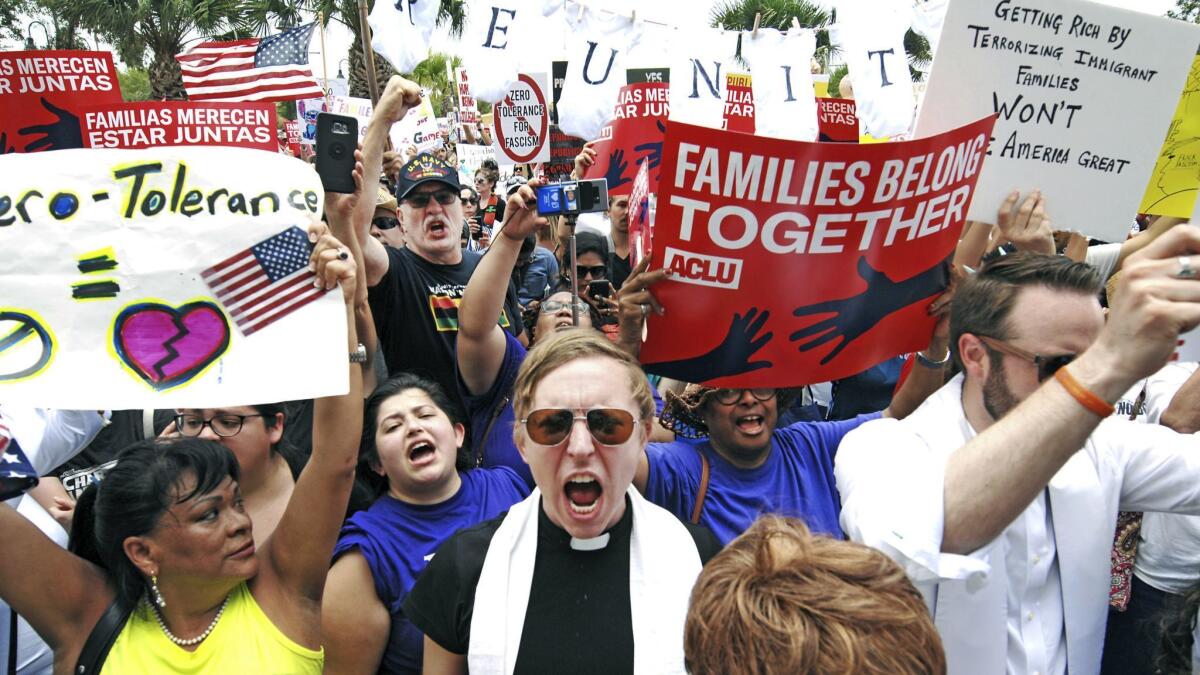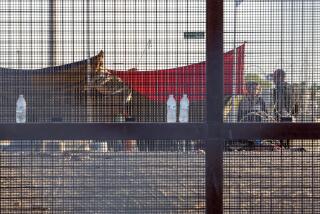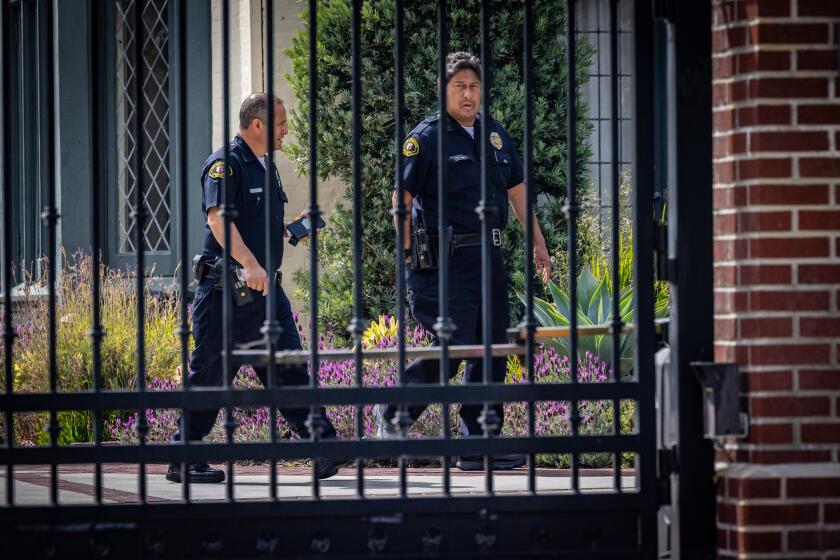Judge temporarily halts deportations of reunified families

A judge on Monday temporarily blocked the federal government from deporting families who have just been reunified, as officials work under court order to match more than 2,500 children with parents they were taken from at the U.S.-Mexico border.
The decision is the latest in a class-action lawsuit brought by the American Civil Liberties Union to stop the government from separating families at the border and to reunite those who were split apart. In June, Judge Dana Sabraw ordered the federal government to reunite families, putting a deadline of July 10 for children younger than 5 and July 26 for older children.
Attorneys asked Sabraw to temporarily halt deportations while he decides whether to impose a more permanent seven-day waiting period between reunification and removal for cases in which the parents have been ordered deported.
In a court filing, the ACLU argued that giving families a week together would allow them time to decide what’s best for them, whether the children should stay to push ahead with their own immigration cases or go back to their home countries with their parents.
“It’s hard to imagine a decision more profound and momentous that parents have to make,” said Lee Gelernt, the lead attorney in the case for the ACLU.
Government attorneys haven’t told the ACLU how many parents already have deportation orders.
Sarah Fabian, a lawyer representing the federal government, cautioned that Sabraw’s latest order might affect reunification times. She indicated that families whose parents had been ordered deported might be held in custody rather than released after they are reunited.
“I can’t guarantee there wouldn’t be some slowdown as a result,” Fabian told Sabraw.
Sabraw responded that it shouldn’t change the process or speed of putting families back together.
“That’s not an option,” he said. “No reason I can think of — if space is an issue, the government will have to make space.”
Jonathan White, an official with the Department of Health and Human Services who is in charge of family reunifications, told the court under oath that the department has identified 2,551 children ages 5 to 17 in its custody who might be eligible to reunite with their parents. They’re being held in 106 locations around the country.
Just more than 1,600 parents of those children are in immigration detention, he said.
To determine whether a family is eligible for reunification, White said, officials manually go through department records to look for “red flags” — anything that might suggest the purported parent is not actually the parent or that the child would be in danger in the parent’s care. About 1,300 have been approved by Health and Human Services for reunification, according to White, and he expects that number to grow.
After Health and Human Services signs off on reunifying a family, Immigration and Customs Enforcement holds a 15-minute interview to make sure that the parent wants the child back. More than 900 parents have been cleared by ICE to reunify with their children, White said.
Once ICE finishes the interview, Health and Human Services will take the child to one of eight ICE facilities for reunification. White said parent and child would be back together within six to 48 hours of the interview ending, depending on how far apart they are geographically.
Those who don’t get immediate approval from Health and Human Services to be reunited will go through additional screening processes including DNA tests, verification of documents from the home country’s consulate, or other investigation depending on what caused the red flag, White said.
“My mission is to safely and expeditiously reunify kids,” White said.
The judge told White that his had “every confidence that you are the right person to do this.”
ACLU attorney Gelernt said that, overall, he was pleased with Monday’s hearing, though he still had some concerns.
Gelernt worried that before the judge’s order, some parents might have been misled into believing that if they gave up their asylum claims and agreed to go home, they would be joined by their children before they were deported. He said that based on government records given to the ACLU, more than 100 parents of children ages 5 and older had been removed.
He also worried that the government had not yet identified potential parents in at least 70 cases. He anticipated that the ACLU might get involved to help find them.
“It’s beyond the imagination that they’ve taken children away and haven’t kept track of where the parents are,” he said. “They need to be found immediately.”
Attorneys from both sides will meet with Sabraw again this week for a status update and will discuss a longer-term order on deportations next week.
More to Read
Start your day right
Sign up for Essential California for news, features and recommendations from the L.A. Times and beyond in your inbox six days a week.
You may occasionally receive promotional content from the Los Angeles Times.







